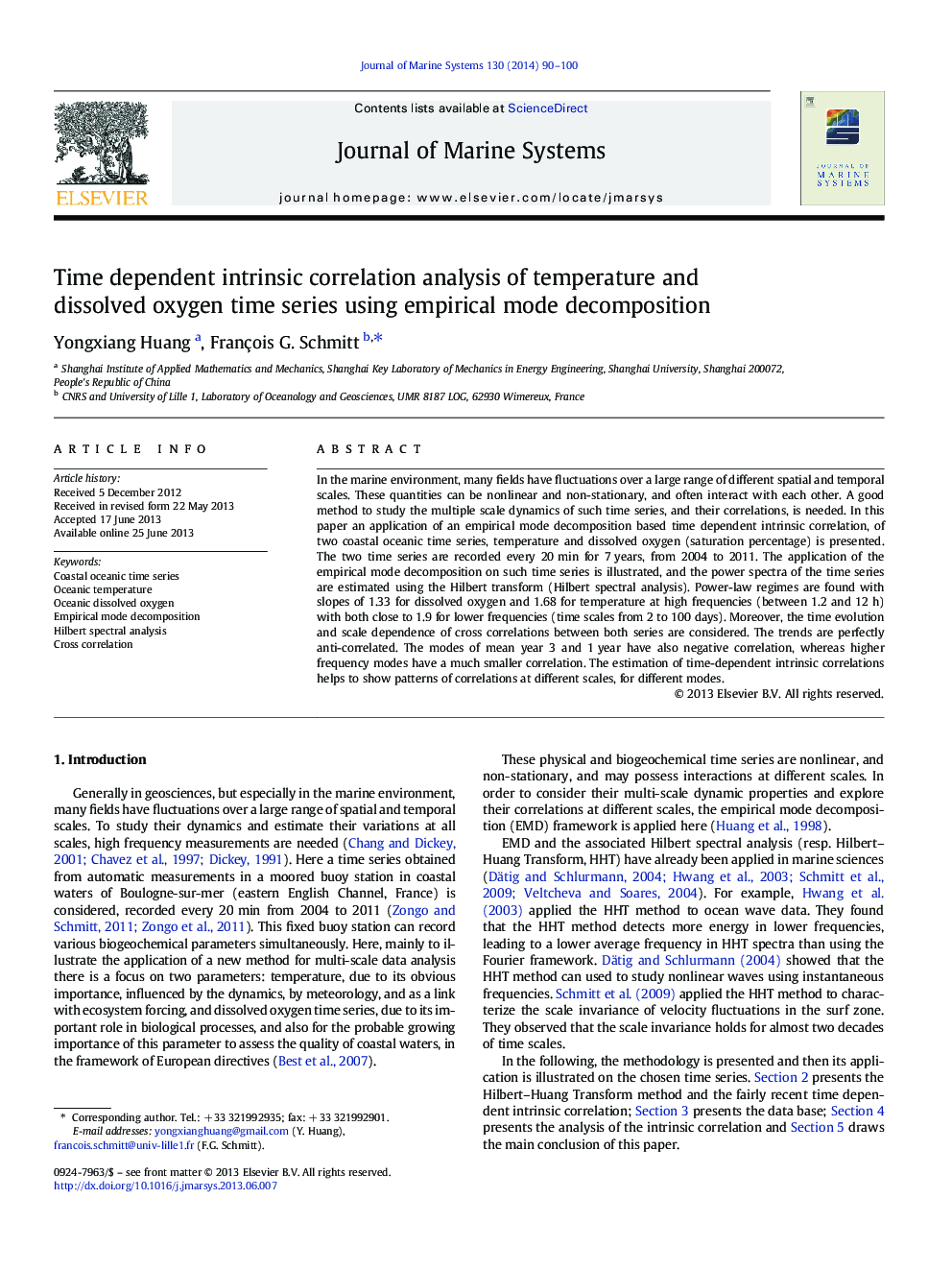| Article ID | Journal | Published Year | Pages | File Type |
|---|---|---|---|---|
| 6387054 | Journal of Marine Systems | 2014 | 11 Pages |
Abstract
In the marine environment, many fields have fluctuations over a large range of different spatial and temporal scales. These quantities can be nonlinear and non-stationary, and often interact with each other. A good method to study the multiple scale dynamics of such time series, and their correlations, is needed. In this paper an application of an empirical mode decomposition based time dependent intrinsic correlation, of two coastal oceanic time series, temperature and dissolved oxygen (saturation percentage) is presented. The two time series are recorded every 20Â min for 7Â years, from 2004 to 2011. The application of the empirical mode decomposition on such time series is illustrated, and the power spectra of the time series are estimated using the Hilbert transform (Hilbert spectral analysis). Power-law regimes are found with slopes of 1.33 for dissolved oxygen and 1.68 for temperature at high frequencies (between 1.2 and 12Â h) with both close to 1.9 for lower frequencies (time scales from 2 to 100Â days). Moreover, the time evolution and scale dependence of cross correlations between both series are considered. The trends are perfectly anti-correlated. The modes of mean year 3 and 1Â year have also negative correlation, whereas higher frequency modes have a much smaller correlation. The estimation of time-dependent intrinsic correlations helps to show patterns of correlations at different scales, for different modes.
Related Topics
Physical Sciences and Engineering
Earth and Planetary Sciences
Oceanography
Authors
Yongxiang Huang, François G. Schmitt,
